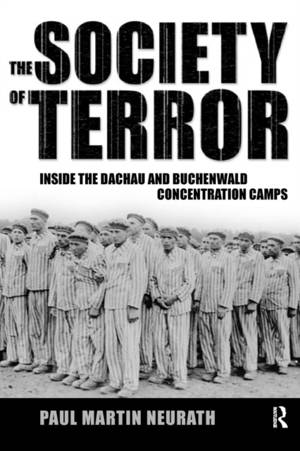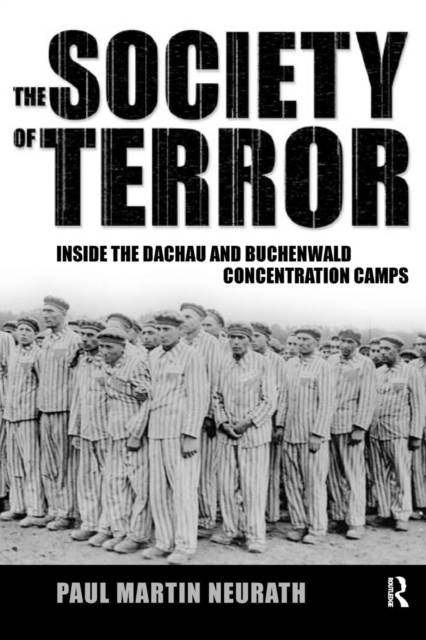
- Afhalen na 1 uur in een winkel met voorraad
- Gratis thuislevering in België vanaf € 30
- Ruim aanbod met 7 miljoen producten
- Afhalen na 1 uur in een winkel met voorraad
- Gratis thuislevering in België vanaf € 30
- Ruim aanbod met 7 miljoen producten
Zoeken
Society of Terror
Inside the Dachau and Buchenwald Concentration Camps
Paul Neurath, Nico Stehr, Christian Fleck
Paperback | Engels
€ 94,95
+ 189 punten
Uitvoering
Omschrijving
During 1938 and 1939, Paul Neurath was a Jewish political prisoner in the concentration camps at Dachau and Buchenwald. He owed his survival to a temporary Nazi policy allowing release of prisoners who were willing to go into exile and the help of friends on the outside who helped him obtain a visa. He fled to Sweden before coming to the United States in 1941. In 1943, he completed The Society of Terror, based on his experiences in Dachau and Buchenwald. He embarked on a long career teaching sociology and statistics at universities in the United States and later in Vienna until his death in September 2001. After liberation, the horrific images of the extermination camps abounded from Dachau, Buchenwald, and other places. Neurath's chillingly factual discussion of his experience as an inmate and his astute observations of the conditions and the social structures in Dachau and Buchenwald captivate the reader, not only because of their authenticity, but also because of the work's proximity to the events and the absence of influence of later interpretations. His account is unique also because of the exceptional links Neurath establishes between personal experience and theoretical reflection, the persistent oscillation between the distanced and sober view of the scientist and that of the prisoner.
Specificaties
Betrokkenen
- Auteur(s):
- Uitgeverij:
Inhoud
- Aantal bladzijden:
- 334
- Taal:
- Engels
Eigenschappen
- Productcode (EAN):
- 9781594510953
- Verschijningsdatum:
- 1/06/2005
- Uitvoering:
- Paperback
- Formaat:
- Trade paperback (VS)
- Afmetingen:
- 159 mm x 227 mm
- Gewicht:
- 449 g

Alleen bij Standaard Boekhandel
+ 189 punten op je klantenkaart van Standaard Boekhandel
Beoordelingen
We publiceren alleen reviews die voldoen aan de voorwaarden voor reviews. Bekijk onze voorwaarden voor reviews.











